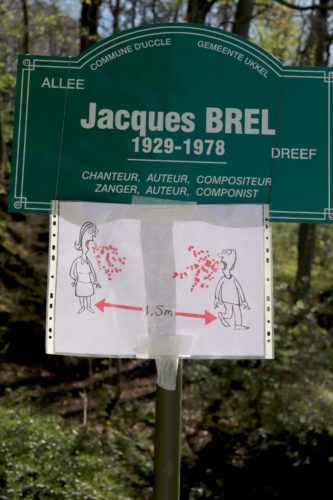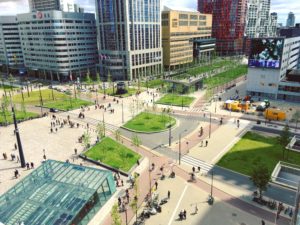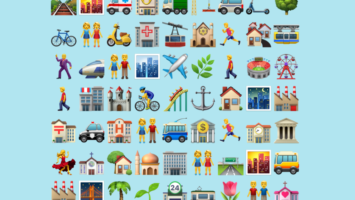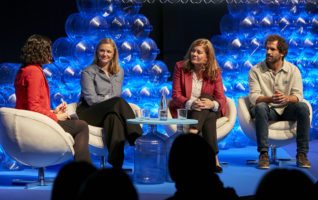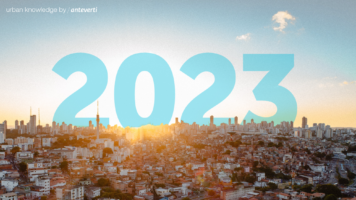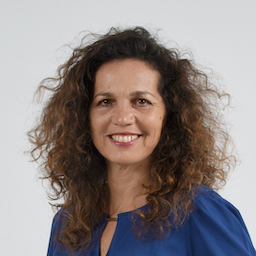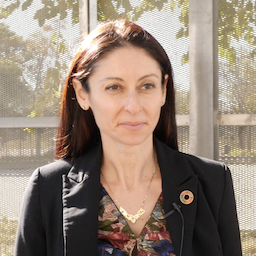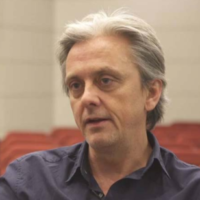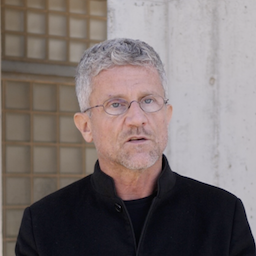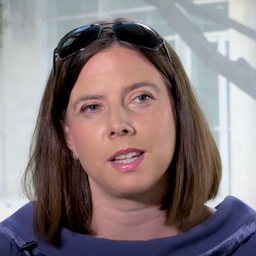Covid-19 and the future of cities: 5 keys to keep moving towards local sustainability
By | 2020
This article is part of the series ‘Covid-19 & The Future of Cities’ – by anteverti
Editor’s note | This article was published in May 2020. For a more recent analysis on the urban impact of Covid-19, please check our new series ‘One Year After’: Urban Learnings from a Year of Pandemic — published in March 2021.
The cessation of economic activities and the drastic decrease in mobility linked to the covid-19 confinement have had an evident environmental impact in cities. Less greenhouse gases emissions, better air quality and an incipient renaturation of urban areas have been significant improvements in urban environmental quality. Now, as normal activities start to be resumed, the debate will re-emerge between supporters of the fight against climate change and promoters of rapid socio-economic recovery – as if both were mutually exclusive.
But the fight against climate change is no longer optional; it has become something unavoidable – a must. Therefore, we face the double challenge of overcoming a socioeconomic crisis and preserving the environmental quality acquired during confinement.
In this context, what can be the way forward for cities? What are the trends that will dominate the new path towards local sustainability in the post-covid era?
1 | Urban Resilience Strategies:
The Cornerstone of The Future of Cities
Were cities worldwide ready for the current pandemic? Are they prepared for the upcoming ecological crisis? Now, city resilience strategies will gain urgency and priority if we are to be ready for what is to come. Resilience evaluations need to advance from a single hazard analysis to multi-hazards assessments, and will only be properly tackled through integrated and collaborative efforts among all sectors and departments city-wide.
Urban planning also needs to switch from a reactive approach to emergencies to proactive preparedness and decision making, bracing cities for an unpredictable and unthinkable future. Understanding the intercorrelations between systems will be key to tackling the complexity necessary for proper urban design, and better data platforms that can provide real insights and capture critical information will become central to the resilience conversation.
2 | Walking, Cycling and Public Transportation:
A Sustainable Mobility Model that Came to Stay
Dense cities are more vulnerable to the virus´ spread because of its high flows and interactions. Although, precisely such density makes cities more efficient in terms of providing services and solutions to this crisis.
Faced with the need to maintain social distance, the discourse is contradictory. On the one hand, some governments recommend the use of private vehicles (with its consequences of pollution and congestion). And on the other hand, cities like Milan, Paris, Bogotá or Barcelona are promoting sustainable mobility rethinking the uses of urban space in favor of active transport modes (bicycle, walk), and reinforcing public transport to offer more options.
This shows the importance of institutional messages, and the opportunity to the tactical urban planning measures applied for the period of health crisis, to carry out in strategic manner with the objective to become structural measures towards a more sustainable mobility.
3 | The 2030 Agenda Will Gain Momentum as the Roadmap for the Only Feasible Future and Recovery
The future that awaits cities is intricate, and this complexity calls for a macro scale approach to the upcoming climatic crisis, and for a framework such as the Sustainable Development Goals that can provide guidance on where we are headed and how to plan our cities accordingly.
Seeing how the Covid-19 health pandemic has affected food supply chains, job security, widened social inequalities and dramatically increased waste generation, to name just a few of its effects, offers a compelling case for understanding how indispensable it will be to achieve a better and more sustainable future for all through the 2030 Agenda blueprint. Thus, the Sustainable Development Goals will be more relevant than ever, providing insights into the interdependent nature of all the goals to tackle in the coming years.
4 | Zero Emission Cities will Be the Ones that Become Future-Proof
There are already studies that relate air pollution with a greater impact on public health and the impact of the virus (in addition to annual deaths from pollution). The lowering of pollution in all cities due to mobility restrictions during the lockdown highlights the environmental improvement produced by the drastic reduction of cars on public roads.
Nevertheless, most of urban emissions come from the use of non-renewable energy sources in buildings. For that reason, infrastructure is at the core of zero carbon cities, as they have the potential to dramatically reduce emissions through material design efficiency and sustainability in new construction, and by properly retrofitting already existing buildings. The better planning of new buildings and adaptation of already existing will distinguish future-proof cities from non-resilient ones.
Our work within the European Union’s Horizon 2020 Growsmarter project attainedresults that were highly aligned with the way forward regarding low-carbon cities: a reduction of up to 70% of CO2 emissions in fully refurbished buildings was achieved, in addition to a reduction of over 11 tons per year through urban sustainable mobility measures.
5 | The Rebirth of Deglobalization:
Self-Sufficient and Circular Cities
Global dynamics made this pandemic possible in the first place – mobility, urbanization, interconnectedness, the worldwide supply chains and the destruction of the environment. In this context, mobility restrictions have highlighted the fragility of global supply chains. In addition, cities are facing overlapping crises that require immediate societal mobilization, the need to relocate the economy and to upgrade local and industrial works.
At the same time that the world needs global cooperation and sharing of knowledge to face the current pandemic, cities and municipalities are living a rebirth of the local engagement to be more resilient. Leveraging Covid-19 recovery programs to simultaneously advance the climate agenda presents a strategic opportunity: that of transitioning towards a more sustainable post–pandemic cities through smart design and fostering a circular and regenerative economy.
WHAT COMES NEXT?
THE TIME TO PLACE CLIMATE-SMARTNESS, RESILIENCE AND DECARBONISATION AT THE CENTRE
The ongoing crisis has demonstrated that climate-smart and resilient initiatives can be implemented and fostered in the short term if prioritised, and the current moment poses an unmissable opportunity, or even a last chance, to advance towards the decarbonisation of the economy and urban sustainability.
It is time for us all to remain committed to advancing towards low carbon and resilient cities – the only city model that will thrive in the expected environmental scenarios that are yet to come. Short steps taken with a long view and critical thinking will bring us to the cities we want, and we are eager to actively contribute to this transition through providing consulting on local and regional resilience strategies and helping all the organizations that are actively committed with ensuring urban adaptation and mitigation in the face of climate change.
#Covid19 and the #FutureOfCities: 5 keys to keep moving towards local #sustainability – by @anteverti Click to tweet!Want to keep reading about the urban impact of Covid-19?
Want to speak to our experts?
Drop us a line!
About the authors
Ana Alcantud was Anteverti's Consulting Director for local, European and international projects until 2022, leading the teams working with public and private stakeholders – such as the IADB, UN, the European Union or the Provincial Council of Barcelona.
Ana Alcantud is a sociologist, with a Master in Local Governance, Sustainability and Participation (UAB) and certified by the Programme for Directive Development (IESE). She has 25 years of background developing strategies, plans and agendas related to urban sustainability, public policies and citizen engagement as well as an extensive experience in European projects (6FP, 7FP, LIFE and H2020). She has also been collaborating with the Global Taskforce on Sustainable Public Procurement promoted by UN Environment.
Since 2022, Ana is Manager of the 4locaLHealth project for L'Hospitalet de Llobregat City Council, an initiative focused on promoting the use of all available technological resources to improve public health in Catalonia's second largest city.
Mons Badia is an expert in eco-innovation, sustainable and resilient urban development and creative and cross-cutting urban solutions. She has been working at Anteverti since 2017, where she is a senior specialist of the Smart City Expo World Congress team and content coordinator for Tomorrow.city. She has also developed smart city and smart region strategies as a consultant.
Mons serves as the President of the College of Environmental Scientists of Catalonia, and has previous professional experience working in the United Nations Global Compact, in the Norwegian University of Science and Technology and in the Universitat de Barcelona, as well as in the consulting firm Inèdit.
Mons Badia has a degree in Environmental Sciences and Fine Arts (Universitat de Barcelona), and is currently studying a Master's Degree in Philosophy for Contemporary Challenges (Universitat Oberta de Catalunya).
From 2020 to 2021, Marta Santamaría worked at anteverti as a consultant and Programme Coordinator of the Smart City Expo abroad events.
Marta's interests are related to urban sustainability and people-centered eco-innovation, a field of research where she has been awarded several awards for designing social and environmental impact business ideas. Her research experience has allowed her to work on European projects on the application of the principles of circular economy to design and to the organization of events and conferences. In addition, she has also collaborated on projects related to climate change governance and adaptation on the Mediterranean coast.
In 2021, Marta joined Deloitte España as a Circular Economy Consultant.
Marta holds a degree in Engineering in Industrial Design and Product Development (Universitat Politècnica de València and Technical University of Denmark) and a Master s in Sustainability Science and Technology (Universitat Politècnica de Catalunya), specialized in circular economy and urban innovation.



